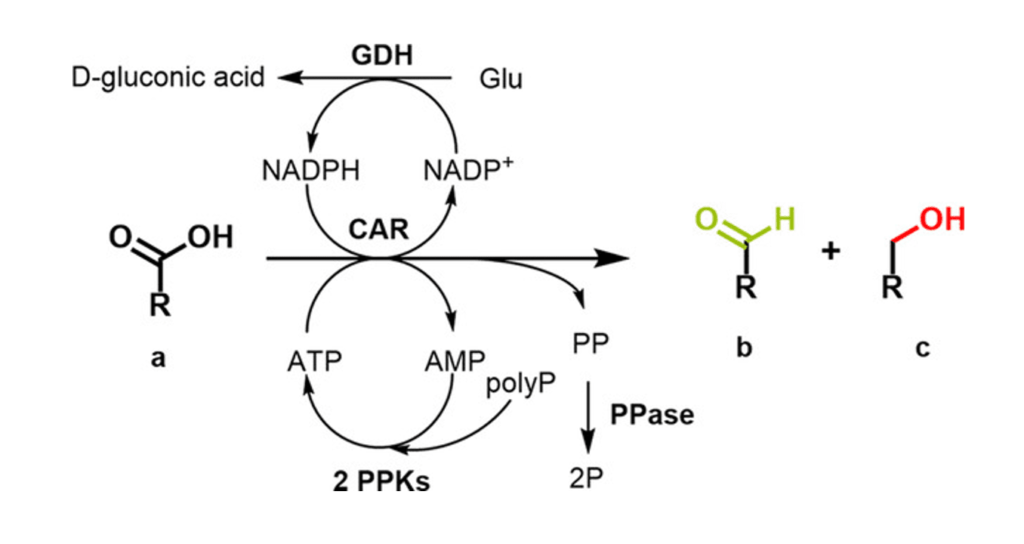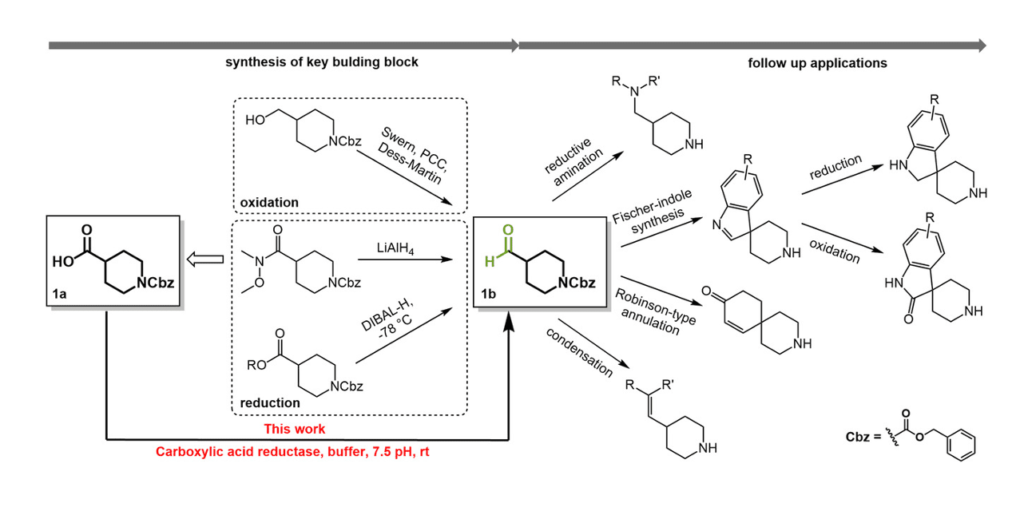The scarcity of practical methods for aldehyde synthesis in chemistry necessitates the development of mild, selective procedures. Carboxylic acid reductases catalyze aldehyde formation from stable carboxylic acid precursors in an aqueous solution. Carboxylic acid reductases were employed to catalyze aldehyde formation in a cell‐free system with activation energy and reducing equivalents provided through auxiliary proteins for ATP and NADPH recycling. In situ product removal was used to suppress over‐reduction due to background enzyme activities, and an N‐protected 4‐formyl‐piperidine pharma synthon was prepared in 61% isolated yield. This is the first report of preparative aldehyde synthesis with carboxylic acid reductases employing crude, commercially available enzyme preparations.
DIO: https://doi.org/10.1002/biot.202000315
Keywords:
aldehyde, biocatalysis, carboxylic acid reductase (CAR), in vitro cofactor recycling, pharma synthon
Authors:
Anna Schwarz, Sebastian Hecko, Florian Rudroff, Jeffrey T. Kohrt, Roger M. Howard, Margit Winkler


